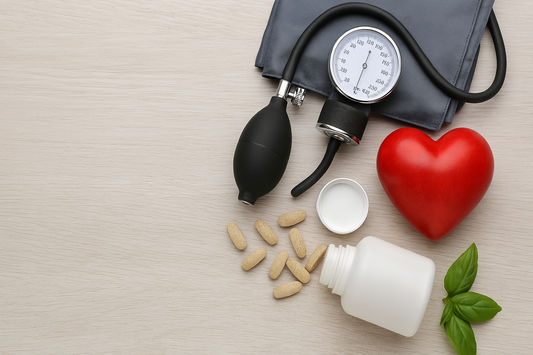What BP Puts You at Risk for Stroke?
High blood pressure, also known as hypertension, is the biggest risk factor for stroke. It plays a role in about half of all strokes. High blood pressure can lead to stroke in different ways, including by causing blood clots in the brain, damaging blood vessels, and increasing the risk of bleeding in the brain.
Lowering blood pressure can significantly reduce the risk of stroke. Medication and lifestyle changes, such as reducing salt intake, quitting smoking, eating a healthy diet, being physically active, and managing stress, are important for controlling high blood pressure and reducing the risk of stroke.
Factors that increase the risk of high blood pressure include smoking, diabetes, being overweight or obese, having high cholesterol, physical inactivity, poor diet, family history, increasing age, being male, chronic kidney disease, and obstructive sleep apnea.
It is important to monitor blood pressure regularly and take prescribed medications as directed to keep blood pressure under control.
Key Takeaways:
- High blood pressure is the leading risk factor for stroke.
- Lifestyle changes can help lower blood pressure and reduce the risk of stroke.
- Factors like smoking, diabetes, and obesity increase the risk of high blood pressure.
- Regular monitoring of blood pressure and adherence to medication are important for control.
- Managing stress and maintaining a healthy diet and physical activity level are crucial for stroke prevention.
Understanding the link between blood pressure and stroke
High blood pressure can lead to stroke in different ways, including by causing blood clots in the brain, damaging blood vessels, and increasing the risk of bleeding in the brain. Understanding this link is crucial for maintaining cardiovascular health and preventing strokes. Hypertension, or high blood pressure, is the biggest risk factor for stroke, playing a role in about half of all strokes. By managing blood pressure effectively, individuals can significantly reduce their risk of experiencing a stroke.
When blood pressure is consistently high, it puts strain on the blood vessels throughout the body, including those in the brain. Over time, this strain can cause blood vessels to become weak or narrow, making them more susceptible to rupturing. Additionally, high blood pressure can contribute to the formation of blood clots. These clots can block blood flow to the brain, resulting in a stroke.
Lowering blood pressure can significantly reduce the risk of stroke.
Managing blood pressure involves a combination of medication and lifestyle changes. Lifestyle modifications include reducing salt intake, quitting smoking, adopting a healthy diet, engaging in regular exercise, and managing stress effectively. These changes can help control hypertension and promote overall cardiovascular health, thus reducing the risk of stroke. It is important to note that the impact of lifestyle changes on blood pressure may vary from person to person, and it is recommended to consult with a healthcare professional for personalized guidance.
According to the American Heart Association, factors that increase the risk of high blood pressure include smoking, diabetes, being overweight or obese, having high cholesterol, physical inactivity, poor diet, family history, increasing age, being male, chronic kidney disease, and obstructive sleep apnea. Monitoring blood pressure regularly and taking prescribed medications as directed are key to keeping blood pressure under control and reducing the risk of stroke.
Lowering blood pressure to reduce stroke risk
Lowering blood pressure can significantly reduce the risk of stroke. High blood pressure, also known as hypertension, is the biggest risk factor for stroke, contributing to about half of all strokes. It is important to manage blood pressure levels to minimize the chances of experiencing a stroke.
There are various methods available for managing hypertension and reducing the risk of stroke. Medication prescribed by healthcare professionals can help control blood pressure effectively. Additionally, lifestyle changes play a crucial role in blood pressure management. By adopting a healthy lifestyle, including reducing salt intake, quitting smoking, eating a balanced diet, being physically active, and managing stress, individuals can maintain optimal blood pressure levels and reduce the risk of stroke.
It is essential to understand the factors that increase the risk of high blood pressure. These factors include smoking, diabetes, being overweight or obese, having high cholesterol, physical inactivity, poor diet, family history, increasing age, being male, chronic kidney disease, and obstructive sleep apnea. Monitoring blood pressure regularly and following prescribed medications as directed are also important aspects of blood pressure control and stroke prevention.
Lifestyle changes for blood pressure control
Implementing lifestyle changes is key to achieving blood pressure control and reducing the risk of stroke. Here are some specific lifestyle adjustments that can help:
- Reducing salt intake: Consuming less salt can help lower blood pressure. Opt for fresh foods and limit processed and packaged foods, which often contain high levels of sodium.
- Quitting smoking: Smoking damages blood vessels, raises blood pressure, and increases the risk of stroke. Quitting smoking can have immediate positive effects on blood pressure levels and overall cardiovascular health.
- Eating a healthy diet: Follow a diet rich in fruits, vegetables, whole grains, lean proteins, and low-fat dairy products. This balanced approach can lower blood pressure and reduce the risk of stroke.
- Being physically active: Engaging in regular physical activity, such as brisk walking, swimming, or cycling, can help lower blood pressure. Aim for at least 150 minutes of moderate-intensity aerobic exercise per week.
- Managing stress: Chronic stress can contribute to high blood pressure. Find healthy ways to manage stress, such as practicing relaxation techniques, engaging in hobbies, or seeking support from friends and family.
By incorporating these lifestyle changes into a daily routine, individuals can take proactive steps towards blood pressure control and reducing the risk of stroke. Remember, it's important to consult with healthcare professionals and follow their recommendations for optimal blood pressure management.
| Factors that increase the risk of high blood pressure: | |
|---|---|
| Smoking | Chronic kidney disease |
| Diabetes | Obstructive sleep apnea |
| Being overweight or obese | Family history |
| High cholesterol | Increasing age |
| Physical inactivity | Being male |
| Poor diet |
Lifestyle Changes for Blood Pressure Control
Lifestyle changes play a crucial role in controlling high blood pressure and reducing the risk of stroke. By making simple yet impactful changes to your daily routine, you can effectively manage your blood pressure levels and improve your overall cardiovascular health.
Here are some key lifestyle modifications that can help you maintain healthy blood pressure:
- Reducing salt intake: Consuming too much sodium can increase blood pressure. By cutting back on processed foods and choosing low-sodium alternatives, you can lower your salt intake.
- Quitting smoking: Smoking damages blood vessels and contributes to high blood pressure. Quitting smoking not only benefits your blood pressure but also improves your overall health.
- Eating a healthy diet: A diet rich in fruits, vegetables, whole grains, lean proteins, and low-fat dairy products can help lower blood pressure. Incorporate heart-healthy foods and limit saturated and trans fats.
- Being physically active: Regular exercise helps to lower blood pressure and maintain a healthy weight. Aim for at least 150 minutes of moderate-intensity aerobic activity or 75 minutes of vigorous-intensity aerobic activity per week.
- Managing stress: Chronic stress can contribute to high blood pressure. Explore stress-reducing techniques such as meditation, deep breathing exercises, or engaging in activities you enjoy.
By implementing these lifestyle changes, you can take control of your blood pressure and reduce the risk of stroke. Remember, small steps can lead to significant improvements in your overall health and well-being. Consult with your healthcare provider for personalized recommendations and guidance on managing your blood pressure.
Table 1: Foods to Limit or Avoid for Controlling Blood Pressure
| Foods to Limit or Avoid | Why? |
|---|---|
| Sodium-rich processed foods (e.g., canned soups, deli meats, fast food) | High in sodium, which can raise blood pressure |
| Highly processed snacks (e.g., chips, crackers) | Often contain unhealthy fats and high sodium levels |
| Sugary beverages (e.g., soda, fruit drinks) | Can contribute to weight gain and higher blood pressure |
| Excessive alcohol | Can increase blood pressure and lead to other health issues |
Remember, making these changes gradually and adopting them as long-term habits will have the greatest impact on your blood pressure and overall health. Stay consistent and motivated, and you'll be on your way to better blood pressure control and reduced stroke risk.
Factors that increase the risk of high blood pressure
Several factors increase the risk of high blood pressure, including lifestyle choices, medical conditions, genetic factors, and demographic characteristics. These factors can contribute to the development of hypertension, a condition that affects millions of people worldwide. By understanding these risk factors, individuals can take proactive steps to manage their blood pressure and reduce the risk of stroke.
Lifestyle choices such as smoking, physical inactivity, and poor diet can significantly impact blood pressure levels. Smoking, in particular, has been linked to an increased risk of high blood pressure and can damage blood vessels, making them less elastic and more prone to narrowing. Similarly, a sedentary lifestyle and a diet high in sodium, saturated fats, and processed foods can contribute to weight gain and raise blood pressure. Adopting healthier habits, such as quitting smoking, engaging in regular exercise, and following a nutritious diet, can help lower blood pressure and reduce the risk of stroke.
Medical conditions such as diabetes, chronic kidney disease, and obstructive sleep apnea are also associated with an increased risk of high blood pressure. Diabetes, for example, can damage blood vessels and impair blood flow, leading to elevated blood pressure levels. Additionally, certain genetic factors can contribute to the development of hypertension, such as having a family history of high blood pressure. Demographic characteristics, including increasing age and being male, are also linked to a higher risk of hypertension. It's important for individuals with these risk factors to work closely with their healthcare provider to monitor and manage their blood pressure effectively.
Regular monitoring of blood pressure is crucial in identifying and managing hypertension. This can be done at home using a blood pressure monitor or through regular check-ups with a healthcare professional. In some cases, prescribed medications may be necessary to control blood pressure levels. Following the prescribed treatment plan and taking medications as directed is essential for maintaining optimal blood pressure control and reducing the risk of stroke.
| Factors that increase the risk of high blood pressure |
|---|
| Smoking |
| Diabetes |
| Being overweight or obese |
| High cholesterol |
| Physical inactivity |
| Poor diet |
| Family history |
| Increasing age |
| Being male |
| Chronic kidney disease |
| Obstructive sleep apnea |
Key Takeaways:
- Several factors increase the risk of high blood pressure, including lifestyle choices, medical conditions, genetic factors, and demographic characteristics.
- Adopting a healthy lifestyle, such as quitting smoking, engaging in regular exercise, and following a nutritious diet, can help lower blood pressure and reduce the risk of stroke.
- Medical conditions like diabetes, chronic kidney disease, and obstructive sleep apnea are associated with an increased risk of hypertension.
- Regular monitoring of blood pressure and following prescribed treatment plans are essential for managing hypertension and reducing the risk of stroke.
Regular monitoring of blood pressure and adherence to prescribed medications are essential for effective blood pressure control. High blood pressure, also known as hypertension, is a major risk factor for stroke, contributing to about half of all cases. It can lead to stroke by causing blood clots in the brain, damaging blood vessels, and increasing the risk of bleeding in the brain.
Lowering blood pressure significantly reduces the risk of stroke. This can be achieved through a combination of medication and lifestyle changes. Medications prescribed by healthcare professionals help in managing blood pressure levels, while lifestyle modifications play a crucial role in long-term control.
"It is important to monitor blood pressure regularly and take prescribed medications as directed to keep blood pressure under control."
By regularly monitoring blood pressure, individuals can stay informed about their blood pressure levels and take necessary steps to maintain control. This involves using a blood pressure monitor at home and visiting healthcare professionals regularly for check-ups. During these visits, healthcare professionals can adjust medications if needed and provide guidance on lifestyle changes to further manage blood pressure.
Adherence to prescribed medications is equally important. Taking medications exactly as prescribed helps in maintaining stable blood pressure levels and reducing the risk of complications, including stroke. It is essential to follow the instructions provided by healthcare professionals, including dosage, frequency, and any specific guidelines for taking the medication.
| Importance of Monitoring Blood Pressure |
|---|
| Regular monitoring |
| Adherence to prescribed medications |
| Reduces risk of stroke |
| Helps in blood pressure control |
The Role of Regular Monitoring
Regular monitoring of blood pressure allows individuals to track changes in their blood pressure levels over time. It helps in identifying any significant fluctuations or trends that may require attention. By detecting abnormal readings early on, individuals can take prompt action to address them, such as consulting healthcare professionals or adjusting medications as needed.
Furthermore, regular monitoring empowers individuals to play an active role in their health management. It provides them with valuable information that can guide lifestyle choices, such as dietary modifications or stress management techniques, in addition to medication adherence. Monitoring blood pressure at home also allows for more frequent and convenient check-ups, ensuring that any potential issues are identified and addressed in a timely manner.
"Regular monitoring of blood pressure is like having a window into your cardiovascular health. It enables you to take control and make informed decisions about managing your blood pressure."
Overall, the combination of regular monitoring and adherence to prescribed medications forms the foundation for effective blood pressure control. By staying proactive and engaged in their health journey, individuals can significantly reduce the risk of stroke and promote overall cardiovascular well-being.
In addition to managing blood pressure, adopting a healthy lifestyle is crucial for stroke prevention. Making positive changes to your daily routine can significantly reduce the risk of experiencing a stroke. Here are some key lifestyle recommendations for stroke prevention:
- Diet: Focus on eating a balanced diet that is rich in fruits, vegetables, whole grains, and lean proteins. Avoid foods that are high in saturated and trans fats, as well as foods that are high in sodium and added sugars. Limit your intake of processed foods and instead opt for fresh, homemade meals.
- Exercise: Incorporate regular physical activity into your routine. Aim for at least 150 minutes of moderate-intensity aerobic exercise, such as brisk walking or cycling, each week. Additionally, include strength training exercises to improve muscle strength and flexibility.
- Stress Management: Find healthy ways to manage stress, as chronic stress can contribute to high blood pressure. Engage in activities that you enjoy, such as yoga, meditation, or spending time in nature. Practice deep breathing exercises and prioritize self-care to reduce stress levels.
By adopting these healthy lifestyle habits, you can significantly reduce your risk of stroke. Remember to consult with your healthcare professional before making any significant changes to your diet or exercise routine. They can provide personalized guidance and support to help you achieve your health goals.
"A healthy lifestyle is not just about preventing stroke, but also about promoting overall well-being. By taking care of our bodies and minds, we can enjoy a better quality of life."
Incorporating these lifestyle changes may seem challenging at first, but with time and dedication, they can become a natural part of your daily routine. Remember, every positive step you take towards a healthier lifestyle is a step towards stroke prevention.
Key takeaways for stroke prevention
Managing blood pressure and implementing lifestyle changes are crucial in reducing the risk of stroke. High blood pressure, or hypertension, is the leading risk factor for stroke, contributing to about half of all strokes. It can lead to stroke by causing blood clots in the brain, damaging blood vessels, and increasing the risk of bleeding in the brain. Lowering blood pressure through medication and lifestyle modifications can significantly reduce the risk of stroke.
There are several lifestyle changes that can help in controlling high blood pressure and preventing stroke. These include reducing salt intake, quitting smoking, adopting a healthy diet, engaging in regular physical activity, and managing stress. By making these changes, individuals can effectively manage their blood pressure levels and reduce the risk of stroke.
Various factors increase the risk of developing high blood pressure. These include smoking, diabetes, being overweight or obese, having high cholesterol, physical inactivity, poor diet, family history, increasing age, being male, chronic kidney disease, and obstructive sleep apnea. Understanding these risk factors is important in identifying individuals who may be more susceptible to developing high blood pressure and taking proactive measures to address it.
Regular monitoring of blood pressure levels is vital in maintaining control and preventing complications. It is recommended to regularly check blood pressure and follow the prescribed medication regimen to keep blood pressure within a healthy range. By actively managing blood pressure and implementing necessary lifestyle changes, individuals can significantly reduce their risk of stroke and promote overall cardiovascular health.
Exploring the role of NutriGrove Blood Pressure Supplement
NutriGrove Blood Pressure Supplement is a great part of a daily routine for lowering blood pressure. This carefully formulated supplement combines key ingredients known for their blood pressure-lowering properties, making it an excellent addition to your overall strategy for managing hypertension.
One of the main ingredients in NutriGrove Blood Pressure Supplement is Hawthorn extract. Hawthorn has been used for centuries in traditional medicine for its cardiovascular benefits, including its ability to support healthy blood pressure levels. Studies have shown that Hawthorn extract can help relax blood vessels, improving blood flow and reducing the strain on the heart.
Another important component of NutriGrove Blood Pressure Supplement is Garlic extract. Garlic has long been recognized for its potential to promote cardiovascular health. It contains compounds that enhance nitric oxide production, which helps relax blood vessels, leading to lower blood pressure levels. Garlic extract also possesses antioxidant properties, protecting the blood vessels from oxidative stress and inflammation.
By incorporating NutriGrove Blood Pressure Supplement into your daily routine, you can benefit from the synergistic effects of these ingredients, supporting healthy blood pressure and reducing the risk of stroke. However, it is essential to remember that NutriGrove Blood Pressure Supplement should not replace prescribed medications or lifestyle changes recommended by your healthcare professional. It is always advisable to consult with your doctor before starting any new supplement regimen.

| Key Benefits of NutriGrove Blood Pressure Supplement: |
|---|
| Supports healthy blood pressure levels |
| Improves blood flow and cardiovascular health |
| Reduces the risk of stroke |
| Contains Hawthorn and Garlic extracts |
| Provides antioxidant protection |
Enhancing your blood pressure management with NutriGrove Blood Pressure Supplement can be an effective strategy for maintaining optimal cardiovascular health. Remember, always prioritize a holistic approach that includes regular exercise, a balanced diet, stress management, and medication adherence to achieve the best results.
Conclusion
Understanding the link between high blood pressure and stroke risk is crucial for effective blood pressure management and stroke prevention. High blood pressure, also known as hypertension, is the biggest risk factor for stroke, contributing to about half of all strokes. It can lead to stroke by causing blood clots in the brain, damaging blood vessels, and increasing the risk of bleeding in the brain.
Lowering blood pressure through medication and lifestyle changes plays a significant role in reducing the risk of stroke. Lifestyle modifications, such as reducing salt intake, quitting smoking, eating a healthy diet, being physically active, and managing stress, are key in controlling high blood pressure and mitigating the risk of stroke.
Various factors can increase the risk of developing high blood pressure, including smoking, diabetes, being overweight or obese, having high cholesterol, physical inactivity, poor diet, family history, increasing age, being male, chronic kidney disease, and obstructive sleep apnea. It is important to monitor blood pressure regularly and adhere to prescribed medications to keep blood pressure under control.
In conclusion, managing high blood pressure is essential for stroke prevention. By prioritizing blood pressure control, adopting a healthy lifestyle, and following medical advice, individuals can significantly reduce their risk of stroke and maintain optimal cardiovascular health.
FAQ
What blood pressure puts you at risk for stroke?
High blood pressure, also known as hypertension, is the biggest risk factor for stroke.
How does high blood pressure contribute to the risk of stroke?
High blood pressure can lead to stroke by causing blood clots in the brain, damaging blood vessels, and increasing the risk of bleeding in the brain.
How can I lower my blood pressure to reduce the risk of stroke?
Lowering blood pressure can significantly reduce the risk of stroke. Medication and lifestyle changes, such as reducing salt intake, quitting smoking, eating a healthy diet, being physically active, and managing stress, are important for controlling high blood pressure and reducing the risk of stroke.
What factors increase the risk of high blood pressure?
Factors that increase the risk of high blood pressure include smoking, diabetes, being overweight or obese, having high cholesterol, physical inactivity, poor diet, family history, increasing age, being male, chronic kidney disease, and obstructive sleep apnea.
Why is it important to monitor blood pressure regularly?
It is important to monitor blood pressure regularly to keep it under control. Regular monitoring allows for early detection of high blood pressure and ensures appropriate measures can be taken to manage it.
What lifestyle changes can help in controlling blood pressure?
Reducing salt intake, quitting smoking, eating a healthy diet, being physically active, and managing stress are lifestyle changes that can help in controlling blood pressure.
What are key takeaways for stroke prevention?
Key takeaways for stroke prevention include blood pressure control, lifestyle changes, and medication adherence.
Source Links
- https://www.stroke.org/-/media/Stroke-Files/Lets-Talk-About-Stroke/Risk-Factors/Stroke-and-High-Blood-Pressure-ucm_493407.pdf
- https://www.stroke.org.uk/what-is-stroke/are-you-at-risk-of-stroke/high-blood-pressure
- https://www.heart.org/en/health-topics/high-blood-pressure/health-threats-from-high-blood-pressure/how-high-blood-pressure-can-lead-to-stroke





